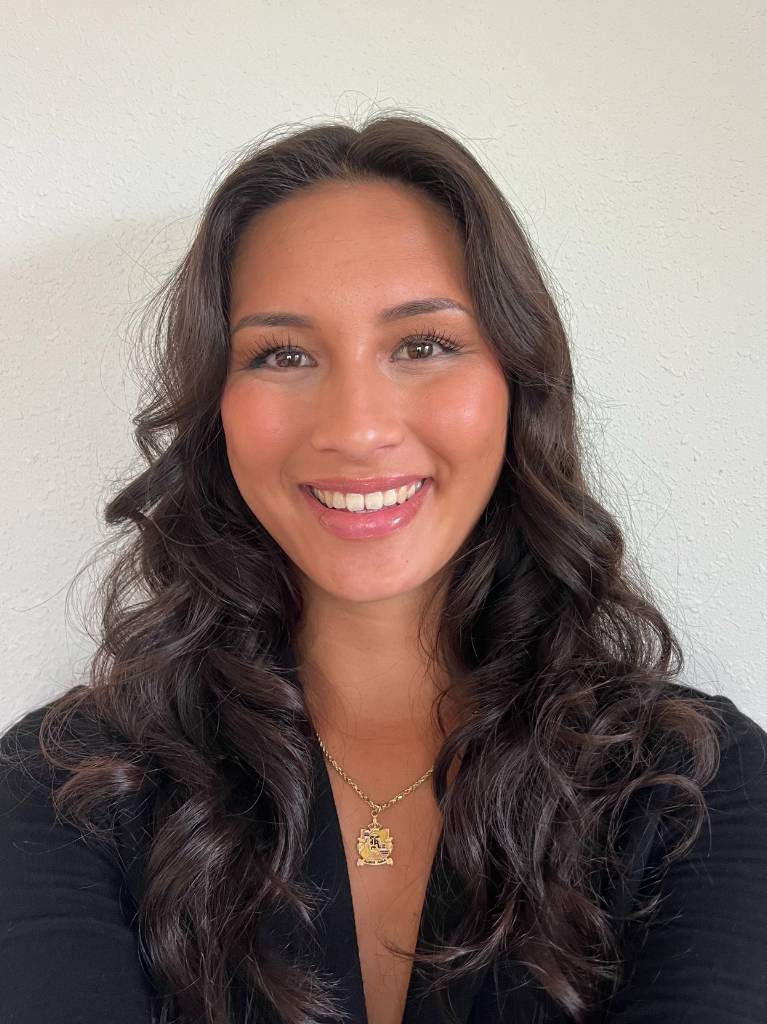AANHPI Heritage Month Spotlight: Cierra Leopoldino
May 23, 2024
Asian American, Native Hawaiian, and Pacific Islanders Heritage Month
To center diversity, equity and inclusion efforts, we invited OSCPA members to share their experiences on culture and identity while navigating the personal and professional world.
How do you define your identity and/or cultural background?
My identity is deeply rooted in the rich tapestry of cultures that make up who I am. Most prominently, I identify as Hawaiian because Hawaii is where I was born, and its traditions and the spirit of Aloha have been an intrinsic part of my upbringing. Although I carry the heritage of being Japanese, Portuguese, Irish, and Korean as well, it's the Hawaiian culture that resonates with me the most.
Do you have any favorite traditions or ways to celebrate your identity?
One of the traditions that I hold dear is attending the events at the Merrie Monarch Festival. This event epitomizes the celebration of Hawaiian culture through its blend of ancient and modern practices. At the Merrie Monarch Festival, the air is filled with the vibrant rhythms of hula, which is an expressive form of Hawaiian dance that tells stories and celebrates our history. The festival invokes the spirit of Old Hawaii, creating an atmosphere where time-honored customs blend seamlessly with the contemporary Hawaiian lifestyle. As I stroll through the events, I am enveloped by the fragrance of fresh leis and the sound of the Hawaiian language—a reminder of the resilience and continuing evolution of our cultural heritage. The Merrie Monarch Festival is more than just an event; it's a pulsating heart of Hawaiian culture, keeping the spirit and traditions alive.
How does your identity impact you in the professional world? Are there any aspects of your culture you incorporate in your work?
My Hawaiian heritage shapes my approach to professional interactions and practices, guided by the Hawaiian saying "Malama kekahi i kekahi," or caring for one another. This philosophy influences how I navigate through professional landscapes, fostering an environment where collaboration, respect, and a sense of community are paramount.
In my work, I actively seek to embody the core values of my culture, such as reciprocity, responsibility to the community, and maintaining strong relationships. Whether in team projects or client interactions, the essence of Aloha guides me—promoting inclusivity, understanding, and shared success.
Have there been individuals in your community or mentors who have shaped how you express your cultural identity?
My cultural identity expression has been significantly influenced by my educational background. Attending a school dedicated to children of Hawaiian descent was critical in fortifying my connection with my heritage. It provided me with a unique opportunity to learn the Hawaiian language and immerse myself in our history, instilling a sense of responsibility to preserve and honor our ancestors' sacrifices. Hawaiian history is a story of resilience, and my time in school highlighted the importance of my ancestors' struggles, such as the ban on the Hawaiian language in the late 1890s. Being cognizant of the challenges our culture has faced, including the near extinction of our language, ignited a passion in me to learn and use the Hawaiian language actively.
What can universities and businesses, especially predominantly White institutions (PWIs), do to better support your community?
To better support the Hawaiian community, universities and businesses, particularly those predominantly White institutions (PWIs), need to engage in meaningful actions that extend beyond superficial acknowledgment of our culture. Firstly, these institutions should educate themselves and their constituents on the history and realities of Hawaii and its people. Understanding the impact of colonialism, the significance of our cultural practices, and the contemporary issues we face will foster a more respectful and supportive environment. More tangible support can come in the form of active partnerships with local organizations to promote Hawaiian educational programs, support economic opportunities for native Hawaiians, and participate in ecological preservation efforts. PWIs should also consider creating scholarships aimed at Hawaiian students, supporting Hawaiian language and studies programs, and encouraging research projects that benefit the community.
Organizations
APANO - Asian Pacific American Network of Oregon
www.apano.org
Articles
PCC - Portland Community College Asian-Pacific Heritage Month Reading List
www.pcc.edu
NPS - Asian American & Pacific Islander Stories from the Oregon National Park Service
www.nps.gov



